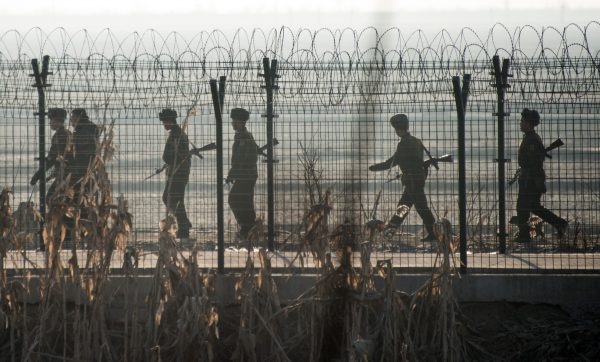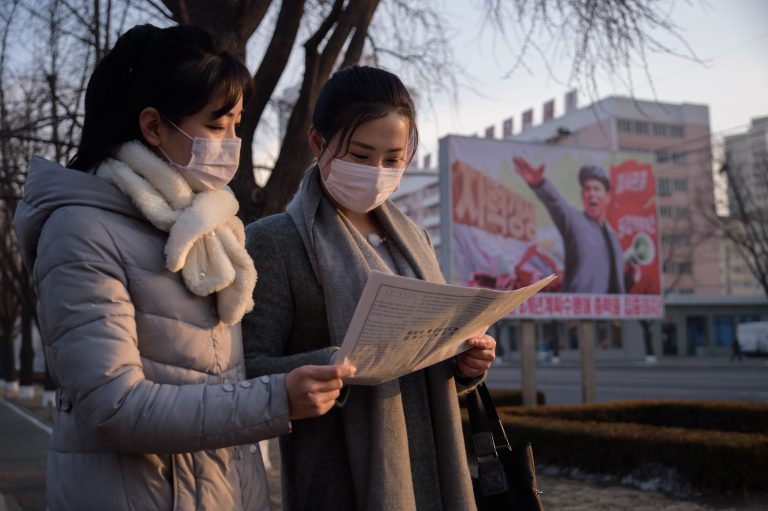The novel coronavirus pandemic and longstanding economic trouble have reduced the North Korean birthrate and put added strain on families throughout the isolated totalitarian state, prompting the leadership to begin a drive to discourage divorce.
In North Korea, the government controls most of the economy, and the country’s political isolation makes it extremely impoverished. Though private business has been somewhat tolerated in recent decades, much of it falls to women as men are largely employed in the vast North Korean military or state-run enterprises.
According to an April 5 article by Radio Free Asia (RFA), this has pushed women to work harder and longer hours so as to supplement their husbands’ often barebones pay. As a result, modern North Korean families are having fewer children than in previous generations.
RFA, a U.S. government-sponsored outlet, described the anti-divorce campaign in a March 30 piece:
“Divorce is against the party line and policy, [and] it must be somehow eliminated,” a North Korean source said of lectures given by the Korean Workers Party-controlled Socialist Women’s Union of Korea.
Success
You are now signed up for our newsletter
Success
Check your email to complete sign up
The source, a resident in the mountainous northern city of Ryanggang, said that residents felt the speeches did not address the regime’s failure to provide or allow better living conditions, and instead shoved these issues under the rug by pinning the blame for familial instability on women.
- North Korea Is Trying to Build a Border Wall With China, But Can’t Get It Finished
- Insubordination Trend Rising in North Korean Military
- North Korean Women ‘Rented’ to China for Work Disappear From Shanghai Dorm, Presumed Defected: Report
“These days the government simply tells people to have more kids and doesn’t provide any food, so women who have to work to feed their families are giving up on childbirth to focus on business,” a woman living in the province of North Pyong’an told RFA.
“Because of this reality, the number of students enrolled in elementary school is decreasing.”
North Korea, which is still technically at war with the South, has historically had a much smaller population than its democratic and capitalist rival, and encourages population growth. Going by the U.N.’s Nations Population Fund, North Korea has been able to maintain the highest total fertility rate (TFR) in northeastern Asia, with around 1.9 children per woman as of last year.

This is in stark contrast to South Korea, which as reported by The Guardian has the lowest TFR in the world at just 0.78 children per woman in 2022, less than half of the 2.1 children per woman needed to maintain or grow a population.
Observers and experts cite the hyper-competitive educational and corporate culture, as well as a toxic social interaction — or lack thereof — between men and women as the reasons for the South’s abysmal fertility.
Though South Korea has 51 million people, or nearly twice the population of North Korea’s 26 million, more children have been born in the North than the South for a few years already.
Statistics Korea reported that just 249,000 children were born in South Korea in 2022, compared with 344,000 newborns in the North in 2021, going by figures from the Population Division of the United Nations Department of Economic and Social Affairs.
This is even with the woman in North Pyong’an telling RFA that women were opting for only one or two children in her community.
However, it remains to be seen whether North Korea will be able to keep up its birthrate even with more traditional gender roles and familial expectations, as the regime faces economic and social turbulence on top of already debilitating poverty.
















